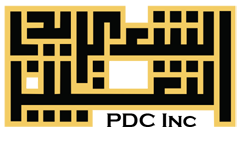
Report from Deir Ez-Zour
A new report by “Justice for Life Observatory of Deir Ez-Zour” from inside Syria on a national resistance movement against ISIS and how ISIS is imprisoning local women to work.
“1-Battalions against the ISIS
Groups opposing the ISIS emerged after an increase of disputes and splits within the ranks of the organization. Sleeper cells began to move and act more and more.
With the beginning of the ISIS entry, assassination were signed by the names of the following:
– Osoud Al Sharqiyah
– Al Kafan Al Abyad
– Qannaseen Al Dawaaesh
– Alkawatem Battalion (its members use snipers and pistols with silencers to carry out quick assassinations of leaders and princes of the ISIS.)
– Deir ez-Zour rebels Battalion
– Ansar Al Haqq Battalion
– Shuhadaa Al Madeenah Battalion
Members of these battalions work to launch a night attack on the organization checkpoints, following the hit-and-run method, or put explosive devices in the machinery of the ISIS member at night and explode them at the right moment.
They use also the method of remote killing using modern sniper rifles, or pistols with silencers, for the assassinations carried out against the princes. And sometimes they engage with members of the ISIS, in clashes that do not last more than half an hour.
It is noted that these battalions use sprays for writing slogans against the ISIS in public places or on the walls of schools, putting the battalion’s name and sometimes the name of the ISIS members killed by that battalion.
Many operations was a reaction to arresting women by Al Hesbah on charges of violations related to the Sharia dress, or after the executions carried out by the ISIS against former members of FSA .
In the city of Abu Kamal, the offensive operations of these groups on the patrols or headquarters of the came in conjunction with the international coalition raids, but such cases has not recently repeated.
On 05/10/2015 a group affiliated to the ISIS was exposed to shooting in the village of Mrat, northeastern the city of Deir ez-Zour, killing six of its members. The implementation of this kind of operations escalated in the recent period, which forced the ISIS members to adopt going out in large numbers and avoid going out in late night times.
2-The ISIS is using today more than 200 civilians for digging the trenches at the airport surrounding, they are divided in 4 groups of about 25 civilians each, and distributed on the airport sectors (Jafrah, Al Dghaim, the International and the Farms). They work in drilling, fortification and establishing barricades, about 12 hours a day for a period between 3 to 15 days according to the detainee’s charge, to send them back to Alhisbah prison to be released, and new detainees taken to continue digging work.
Infractions of the civilians that may lead them to such a work are smoking, wearing jeans, not shortening the trousers according to the extent asked by the organization. With the start of the airport battle, the ISIS began to take the young men to carry out digging works under flimsy and ridiculous charges.
In addition to arresting the young men in rural Deir ez-Zour, the ISIS started recently to arrest the women, for using them in the areas near the clash lines, in works of cooking and cleaning houses for the ISIS members, which is a dangerous precedent indicating the extent of disregard for the lives of citizens
Om Shahd from Deir ez-Zour tells the story of her arrest by members of the ISIS in Al Mayadeen city: “I was in a market, when one of the ISIS members stopped me under the pretext of not covering my eyes. Although I responded and covered them, he followed me and arrested me on the pretext that I do not believe in the Sharia dress so I did not abide by it from the beginning.”
Om Shahd was taken to a bus where she was surprised to see it full of women detainees, all were taken directly to the town of Almrieyah adjacent to the military airport of Deir ez-Zour. There they were asked to work in the houses the ISIS members. Om Shahd says “they distributed the work among us, and asked me with three other women to wash blankets and covers, some worked in cooking and cleaning the house, and the rest were sent to dig near the airport. After finishing the work, members of the ISIS put us in a (van) to bring us back to the city of Al Mayadeen.””
